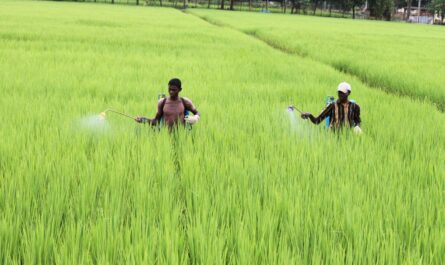Plastic waste has become one of the major environmental issues faced globally with huge amounts of plastic products ending up in landfills and oceans every year. However, thanks to advances in recycling technology, recycled plastic granules produced from post-consumer plastic scrap are emerging as a promising solution.
What are recycled plastic granules?
Recycled plastic granules, also known as recycled plastic pellets or nurdles, are small uniform plastic particles produced by shredding, grinding, cleansing and processing post-consumer plastic products like plastic packaging, containers and other plastic waste. The average size of these granules ranges from 2-5mm. They are categorised based on plastic resin types like PET, HDPE, PVC, LDPE etc.
The recycling process
The process of producing recycled plastic granules starts with collection of vast amounts of plastic waste from various sources like municipal solid waste, industrial waste etc. This waste then undergoes an initial sorting and cleansing process to remove any non-plastic contaminants. Following this, the sorted plastic scrap is shredded into small flakes using shredding machines.
The plastic flakes are then washed, dried and processed in grinding mills to break them down further into fine plastic powder. This powder is then passed through extruders at high temperature to form uniform plastic granules. Various quality checks ensure foreign matter removal before the granules are ready for usage in manufacturing applications. Modern, automated facilities can churn out tonnes of granules every day through this process.
End uses of recycled plastic granules
Recycled plastic granules find widespread applications as a cost-effective replacement for virgin plastic pellets in manufacturing many plastic products:
– Packaging industry: Granules are used in production of carry bags, wrappers, containers, bottles and other packaging items through injection and blow molding. This helps curb usage of virgin plastic.
– Construction industry: Granules enable manufacturing of plastic products like drainage pipes, profiles, fences which are finding increasing usage in construction due to qualities like durability and corrosion resistance.
– Automotive industry: Various automotive components, interior trims and panels utilize recycled plastic granules to reduce waste and costs for automakers.
– Fibre and filament industry: Granules serve as raw material for production of polyester fibres and filaments through extrusion. These fibres then enable spinning yarns for apparel and other textiles.
– 3D printing filaments: Even specialized 3D printing filaments used in prototyping and manufacturing parts are emerging from recycled plastic waste streams.
Benefits of using recycled plastic granules
Apart from providing a sustainable solution for plastic waste management, usage of recycled plastic granules brings several environmental and economic advantages:
Conservation of resources: They help reduce dependence on virgin plastic derived from petroleum thereby conserving non-renewable resources. Granules utilize plastic that would otherwise end up in landfills.
Lower carbon footprint: Plastic production using recycled granules entails far lower carbon emissions compared to virgin plastic production involving extraction, transportation of raw materials over long distances.
Cost effectiveness: Granules serve as a cheaper raw material alternative to virgin plastic for manufacturers, helping reduce production costs. Processing post-consumer plastic waste into granules also generates revenue.
Landfill space savings: Widespread recycling and reprocessing of plastic waste through granules decreases overall waste requiring landfilling and thus saves valuable landfill space.
Job creation: Thriving recycling industry supported by billions of dollars has emerged with potential to create numerous green jobs in collection, sorting and granule production worldwide.
Challenges in large scale adoption
However, for recycled plastic granules to truly replace virgin plastic on a much larger commercial scale, certain challenges need to be addressed:
– Inconsistent quality: Quality of recycled granules can vary based on type and cleanliness of input plastic waste. This poses limitations in applications requiring strict quality standards.
– Collection infrastructure gaps: Effective separate collection systems need to cover wider regions to source segregated high quality recyclable plastic at scale from residential and commercial areas.
– Market demand constraints: Steady demand pull is necessary from product manufacturers willing to consistently use granules as core raw material instead of fall back option to boost investments in recycling ecosystem.
– Public awareness: More public education is required regarding proper plastic waste segregation and importance of recycling to continually feed plastic waste streams.
– Policy push: Supportive governmental regulations and incentives promoting use of minimum recycled content across product categories can turbocharge circular plastic economy.




